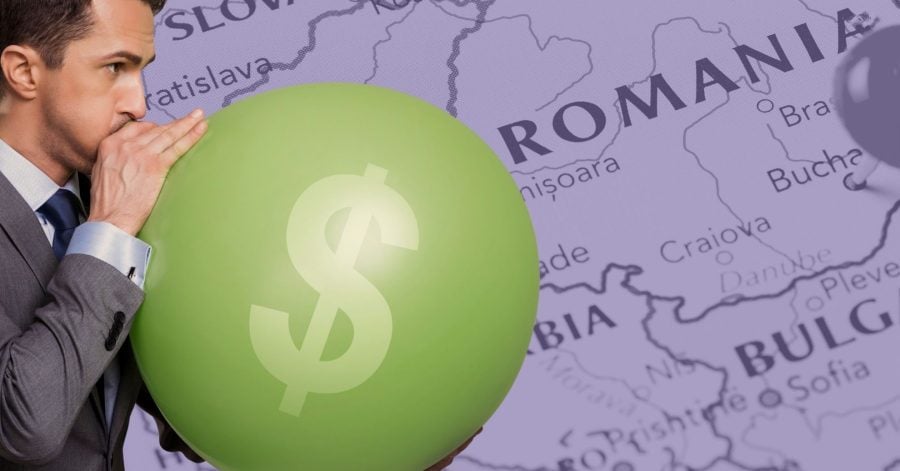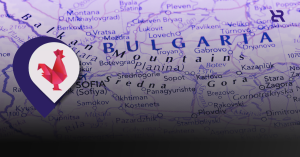In early 2021, in the middle of the pandemic, the globe started whispering its name. Fast-forward to 2022 and amid the Russian war against Ukraine, inflation has spiked. But like with any challenge, it’s the response that matters to the outcome.
In Romania, the average inflation rate before the pandemic was around 2.1%. The percentage grew to 8.2% at the end of 2021, and now it appears to be around 8.5%.
Economists predict the inflation rate might reach around 11% during summer, and will probably stabilize at 9.6% at the end of 2022.
The rise of salaries plateaued, food prices accelerated, and so did that of fuel, with energy and gas prices lighting the fire. Analysts say the numbers will continue increasing after April when the law that caps the price of gas and electricity will end.
The Recursive reached out to a few tech startup founders in Romania to explain how they are planning on riding the inflation wave this year. They share their strategies for managing both their businesses and their teams. Mental health is also on the topic board, as leadership must address all kinds of crises and uncertainty.
Inflation journey in Romania
So, how does inflation look on the ground in Romania? We begin at the base of the Tampa mountains in Brasov and continue with buzzing Bucharest. Our journey leads us through different markets, from eFulfillment to eCommerce, and lands in the real estate area.
Bogdan Colceriu is the co-founder and CEO of Frisbo, an eFulfillment solution bridging the relationship between online stores with operators and logistics providers. Launched in 2014, in Brasov, its team is currently scaling the solution in Europe, after raising $2M last year.
Bogdan Colceriu shared that as their clients operate in different markets, he has witnessed a wariness coming from the e-Commerce players. As these businesses depend on the stock, predictability is important.
Another startup in eCommerce is easySales, which raised €350K in a record time last year to grow internationally. This year the team is developing in the Bulgarian and Hungarian markets while eyeing the UK and the US.
easySales is a B2B SaaS company founded in 2019, in Bucharest, that offers seamless communication between eCommerce channels and platforms. The co-founder and CEO of the startup, Ciprian Cazacu, says that so far their business has been resilient to the inflation pressure. But he adds that they are aware that long-term, their clients will have to incorporate inflationary costs in the products.
Moving on to another sector, highly affected by rising prices – real estate, The Recursive reached out to Bucharest-based Bright Spaces. The end-to-end digital leasing platform founded in 2019 raised €1.5M to accelerate real estate digitalization in CEE and is now working on reaching the product-market fit stage.
Bogdan Nicoara, co-founder and CEO of Bright Spaces, believes that the effects of inflation will accelerate. Their clients are medium and big landlords, and they have seen a decrease in purchasing power, and collateral consequences, like aversion to risk and a strict approach to new investments. But Nicoara says that this is also a great opportunity for real estate players to change the way they address the market.
“Historically, the world changed all the time and it is just our limited mindset that tries to tie everything down, isolate ideas and try and make processes permanent. The harsh truth is that everything changes all the time, the only novelty now is the speed at which this is processed (or not) by our personal and companies’ brains,” Bogdan Nicoara explains.

The VC table for discussion
Taking into account the major changes that the globe has been going through since the end of February when the Russian-Ukrainian war began, we have been covering the VC investment shifts. So, we were also interested in finding out the tech startup founders’ perspectives.
Bogdan Colceriu shared that they are looking forward to raising a funding round and have not seen a change in VCs’ willingness to invest. But he is aware the current situation is affecting the industry his team is addressing, which might be brought up to the VC table for discussion.
“VCs are strategically looking at companies and their future growth perspectives and, in difficult times, they want to identify and seize more business opportunities. It is known that great companies are born and raised during recessions or in hard times. In terms of country risk, VCs assess this risk objectively, taking into consideration for instance the fact that Romania is part of the EU and NATO,” Ciprian Cazacu from easySales adds.
Business strategies in times of inflation
“For us, as a business emerging in the CEE, expansion to more mature markets, especially in Western Europe and even outside the EU, is the strategy. We already started operating in Germany, Spain, and the UK, but for sure we will be addressing more markets by the end of the year,” Bogdan Colceriu from Frisbo shared.

Growing in Romania and expanding internationally is also in the plan for easySales. As they have an established business and an automation solution that can offer value to merchants and can help them lower costs, the team is confident moving forward.
“Adaptability is the right word I would use. Not just for a bear market or record-level inflation, but also as a general mindset for the future. Instead of trying to keep things as they were, everyone should see the new opportunities arising from an ever-changing and fast-paced environment,” comments Bogdan Nicoara from Bright Spaces.
The importance of communication
When it comes to addressing inflation concerns, founders emphasize the importance of communication, both with clients and investors and within the team. Bogdan Colceriu from Frisbo says he keeps his team informed and aligned with the company’s growth plans, as this keeps members motivated and involved.
Ciprian Cazacu from easySales shares that regular meetings with the team to discuss concerns and align on important topics, improvised outings to the movies, or playing tennis are some pillars of their business culture.
“Building a strong team has always been high on our agenda. A company is nothing more than its people. We have been cultivating values such as resilience, courage, agility, transparency, and humanity and we have glued all these together with fun, creating thus an atmosphere of collaboration and performance that is helping us now, in more difficult times,” adds Ciprian Cazacu.

While Bogdan Nicoara acknowledges the importance of celebrating “the little wins” to boost morale, as well as communicating on alignment, confidence, and motivation. For this, they have started Bright Stories, recurring sessions with the team to connect, and where external guests are also invited to share their knowledge.







